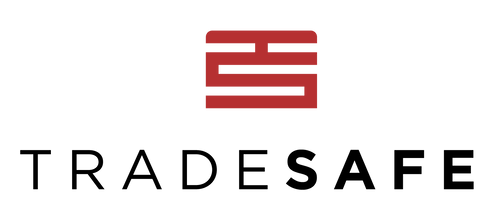
The NFPA 70E serves as a foundation for promoting the standard for electrical safety across various industries. As part of its ongoing mission to enhance and update this crucial safety standard, the National Fire Protection Association (NFPA) has opened the floor for public input. This participatory process ensures that the standard evolves with the latest insights and innovations, empowering industry professionals, experts, workers, and other stakeholders to maintain and improve electrical safety protocols.
The public input process is a critical phase in the lifecycle of the NFPA 70E standard. It allows and encourages stakeholders to contribute their perspectives, experiences, and suggestions. This collaborative approach helps ensure that the standard remains relevant, comprehensive, and effective in addressing the ever-evolving challenges in electrical safety.
NFPA 70E: Electrical Safety Standard Overview
The NFPA 70E standard provides a detailed framework for electrical safety in the workplace. Its comprehensive guidelines are designed to protect workers from electrical hazards and ensure safe working conditions.
The key requirements of NFPA 70E standard organizations must adhere to include the following:
- Risk Assessment Procedures: Identifying and evaluating electrical hazards to implement appropriate safety measures.
- Safe Work Practices: Establishing protocols for working safely around electrical systems.
- Personal Protective Equipment (PPE): Mandating the use of appropriate PPE to protect workers from electrical hazards.
- Training Requirements: Ensuring that workers are adequately trained in electrical safety practices.
NFPA 70E Standard: Gaining Insights From Industry Experiences & Opinions
The NFPA 70E Standard for Electrical Safety in the Workplace is a crucial safe work practice standard that undergoes revision every three years to ensure it remains up-to-date with the latest industry practices and technological advancements. The revision cycle for NFPA 70E has commenced again this year, marking an important opportunity for stakeholders to contribute to the standard's evolution and encourage innovations in electrical workplace safety.
To avoid any form of bias, the NFPA practices and maintains an entirely independent process for revising its standards. To ensure objectivity, NFPA staff members are prohibited from submitting proposed changes to any standard. This policy underscores the importance of external contributions, as the NFPA relies on industry experts, stakeholders, and the general public to propose revisions and enhancements.
NFPA 70E Revision: Public Input Process
The public input process is a critical component of the NFPA 70E revision cycle. During this phase, individuals and organizations are invited to submit their suggestions for improving the standard. The public input process for NFPA 70E goes as follows:
- Submission of Proposals: Stakeholders can submit proposals for changes to the NFPA 70E standard. These proposals can address any aspect of the standard, including safety protocols, training requirements, and PPE guidelines.
- Review and Discussion: Once submitted, proposals are reviewed and discussed by the NFPA's technical committee. This committee comprises industry experts who evaluate the merit and feasibility of each suggestion.
- Public Comment: Following the initial review, the proposed changes are made available for public comment. This allows further input and feedback from the broader community, ensuring that the revisions are well-vetted and widely supported.
To participate in the public input process, head to the NFPA 70E document information web page and select the “Next Edition” tab. There, you can choose to “Submit Public Input Online” and log in to proceed with the input process. The current cycle's deadline for submitting proposals is on June 4, 2024. Ensuring timely submission of your suggestions will enable them to be considered in the upcoming revision of the NFPA 70E standard.
Obtaining NFPA 70E Certification
Obtaining NFPA 70E certification demonstrates an individual's or organization's commitment to electrical safety. This certification process involves rigorous training and assessment, ensuring that certified professionals are well-equipped to implement and maintain electrical safety programs. An NFPA 70E certification offers professional recognition, establishing credibility and expertise in electrical safety. It also promotes a culture of safety within the organization and assures compliance with relevant safety standards and practices.
By staying informed, engaged, and compliant with the NFPA 70E standard for electrical safety, organizations can foster a safer working environment and keep up with the latest advancements in electrical workplace safety.
FAQ
Is NFPA 70E required by OSHA?
The NFPA 70E is not directly required by OSHA, but OSHA often references NFPA 70E as a best practice for electrical safety.
What is the NFPA fire scale?
The NFPA fire scale, also known as the NFPA hazard diamond, is a labeling system used to identify the level of health, flammability, reactivity, and special hazards associated with chemicals.
What are the PPE requirements for NFPA 70E?
The PPE requirements for NFPA 70E include wearing appropriate arc-rated clothing, insulated gloves, face shields, and other protective gear based on the incident energy level of the electrical system.
Who is a qualified person for NFPA 70E?
A qualified person for NFPA 70E is someone who has the skills and knowledge related to the construction and operation of electrical equipment and installations, and has received safety training to identify and avoid electrical hazards.
What are the 5 golden rules of electrical safety?
The 5 golden rules of electrical safety are essential for ensuring a safe working environment. First, ensure all electrical sources are fully disconnected. Second, use lockout/tagout procedures to prevent accidental re-energizing. Third, test to confirm there is no electrical energy present. Fourth, ground any residual energy to prevent accidental shocks. Finally, always wear the necessary personal protective equipment (PPE) to protect against electrical hazards.
TRADESAFE is an American-owned and based company who are trusted experts in industry safety compliance and standards. We offer lockout tagout supplies, workplace signs, and other key safety products to ensure and enhance workplace safety.
